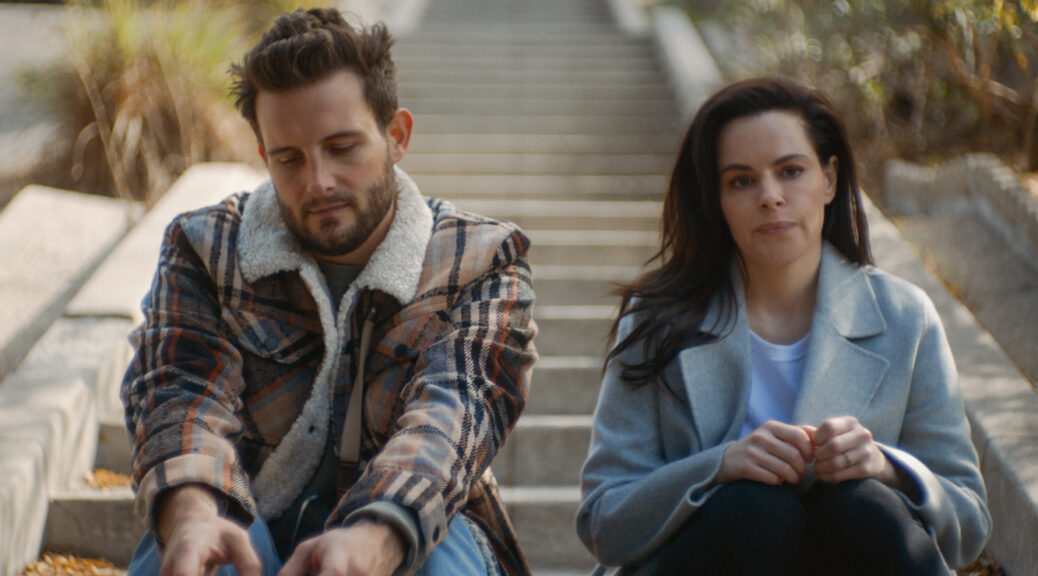The Mattachine Family
by Rachel Willis
At the heart of director Andy Vallentine’s The Mattachine Family is a story about the families you build in life—the people who aren’t related to you by blood but may know you better than anyone else in the world.
Guiding us through this world is Thomas (Nico Tortorella). A photographer by trade, his images pepper the film, generally accompanied by long moments of exposition. The film opens with one of the longest voiceovers I’ve seen in a film, images flashing across the screen as Thomas introduces us to his story. It’s a curious way to establish characters, rather than letting the story unfold more organically.
Similar scenes periodically interrupt the film, taking you out of the moments developing between characters. This gives things an episodic quality, but the interruption and exposition never cover anything that couldn’t be conveyed in a more natural way.
Thomas’s central conflict is his relationship with husband Oscar (Juan Pablo Di Pace) and their debate over whether to bring a child into their lives. The characters spend most of the film separated, limiting our chance to develop feelings for Oscar’s side of the debate.
Despite this being Thomas’s story, he comes across as selfish, never really considering how his husband feels. There’s no sense of partnership, which is where the couple’s problem truly lies.
A bright spot is Heather Matarazzo’s turn as an internet influencer who chides her child’s father for not dressing him in the “right” outfit for a photo shoot. That the outfits are indistinguishable to an outside observer gives the film its only truly humorous moment.
The Mattachine Family tackles some interesting issues that come up in the lives of LGBTQ+ couples, but the conflicts aren’t effectively fleshed out. Dialogue repeats rather than enhancing how the characters feel, effectively sabotaging any feelings the audience might have for their struggles.
While narrative voiceovers can have a place in a movie (can even strengthen them), in this case we might have had a more relatable story if they weren’t relied on so heavily.

